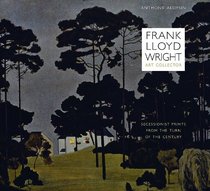Search -
Frank Lloyd Wright, Art Collector: Secessionist Prints from the Turn of the Century (Roger Fullington Series in Architecture)
Frank Lloyd Wright Art Collector Secessionist Prints from the Turn of the Century - Roger Fullington Series in Architecture
Author:
These Secessionist art prints, acquired by Frank Lloyd Wright and his lover Mamah Borthwick Cheney during their infamous flight to Europe in 1909-1910, reveal a new dimension of the architect's taste and aesthetic preferences. This previously unknown and newly discovered group of prints from his personal art collection shows that around the turn... more »
Author:
These Secessionist art prints, acquired by Frank Lloyd Wright and his lover Mamah Borthwick Cheney during their infamous flight to Europe in 1909-1910, reveal a new dimension of the architect's taste and aesthetic preferences. This previously unknown and newly discovered group of prints from his personal art collection shows that around the turn... more »
ISBN-13: 9780292737211
ISBN-10: 0292737211
Publication Date: 4/1/2012
Pages: 132
Rating: ?
ISBN-10: 0292737211
Publication Date: 4/1/2012
Pages: 132
Rating: ?
0 stars, based on 0 rating
Publisher: University of Texas Press
Book Type: Hardcover
Members Wishing: 1
Reviews: Amazon | Write a Review
Book Type: Hardcover
Members Wishing: 1
Reviews: Amazon | Write a Review
Genres:
- Arts & Photography >> History & Criticism >> Schools, Periods & Styles
- Arts & Photography >> Collections, Catalogs & Exhibitions
- Arts & Photography >> Graphic Design
- Engineering & Transportation >> Architecture




